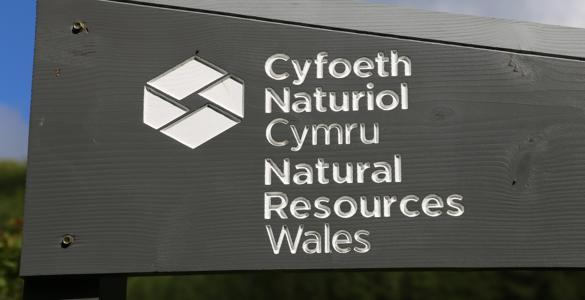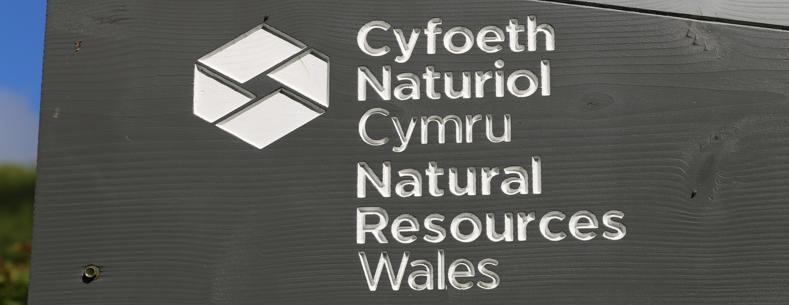Natural Resources Wales (NRW) will no longer run cafes and shops at its visitor centres, and will close its physical library service as part of a drive to save £12m.
NRW says the changes, which also include reducing the number of “low category” pollution incidents it responds to, will allow it to focus on essential services.
There’s been uncertainty over whether NRW can exercise its duties and responsibilities effectively. Decreasing budget coupled with additional responsibilities and ongoing issues around staffing capacity, have been regular features of Senedd scrutiny in recent years.
This article looks at how the environmental regulator is addressing these issues, while seeking to drive long-term benefits for Wales’s natural environment.
What changes is NRW making?
On 6 November NRW announced it will streamline activities and concentrate on delivering essential services only it can provide. It said it will invest in “priority areas that will drive long-term benefits for Wales’s natural environment including enhancing efforts in improving water quality and monitoring”.
NRW Chair, Sir David Henshaw, said:
Our goal is to ensure that every pound of public funding is used efficiently and effectively, with a focus on tackling the climate emergency, restoring biodiversity, and addressing environmental risks. The changes we’re making now will help us maximise our impact where it matters most.
The proposals set out in NRW’s ‘Case for Change’ were agreed by its Board on 5 November. They include:
- Cutting 233 jobs. 103 of these are currently vacant so 120 staff members will be directly impacted. They will be redeployed within the organisation, where possible.
- “Small reductions in enforcement and some reductions in the development of regulatory approaches (provision of evidence, advice and guidance)”. There’ll be increased regulatory compliance capacity across water and current levels will be maintained for waste and industry compliance activities.
- A “higher tolerance of risk”, meaning NRW will look to reduce the number of “low category” pollutions incidents it responds to.
- Catering and retail provision at visitor centres will stop, but NRW is seeking external partners to run these services instead.
- Closure of NRW’s physical library service in Bangor.
- NRW’s flood risk management service is expected to provide options for an additional saving of £2.1m.
- A decrease in resources for outdoor activities and recreation, strategic environmental policy, climate change and the green infrastructure programme.
Further details of the changes can be found in this NRW document.
How did we get to this point?
NRW proposed to change its staffing structure and consulted with its trade unions during the summer. WWF Cymru said the changes would "put nature at risk".
NRW’s public facing ‘Case for Change’ document gave details of why NRW believes the changes are necessary. This document is no longer publicly available but these details focused on:
- NRW’s changing strategic direction as a result of its new corporate plan and well-being objectives.
- The organisation’s financial instability – NRW estimates a funding gap of £9m in 2024-25, which will it says will grow by circa £4m in 2025-26 to £13m, with a further £4m added in 2026-27. NRW says this means a funding gap of over £17m by 2026-27, if no action is taken.
- Prioritisation of activities set out in a ‘baseline exercise’ – following this, proposals for change were developed for each relevant part of NRW.
Further detail on how the changes would be implemented was provided to the trade unions, but wasn’t made publicly available. Following consultation with the unions, an amended proposal was presented to the NRW Board on 25 September.
The Board met on 5 November to make its final decision, with staff informed on 6 November.
Is NRW closing visitor centres?
The potential ‘closure’ of three NRW visitor centres (Bwlch Nant yr Arian and Ynyslas in Ceredigion, and Coed y Brenin in Gwynedd) has raised significant public and political concern.
Campaigners are concerned that ‘closure of the centres’ is being “concealed by saying the centres will no longer provide retail or catering”. They say this will have “a hugely detrimental impact on the environment, wellbeing, and the local economy”.
A petition with over 13,000 signatures was debated by the Senedd on 9 October. Petitions Committee Chair, Carolyn Thomas MS, noted the economic and community benefits of the centres and highlighted frustration about NRW’s lack of consultation with stakeholders.
Mabon ap Gwynfor MS emphasised the potential negative impact on tourism and local culture, particularly concerning Coed y Brenin, a globally recognised mountain biking hub. He warned of a "cliff edge" situation where centres might close and not easily reopen, eroding their brand value and economic benefits.
Janet Finch-Saunders MS stressed that NRW’s focus “should be on finding sustainable funding solutions and alternative staffing options” not making cuts that will “diminish the value of these treasured spaces”.
Representatives of the mountain biking community argue that the closures contradict the Well-being of Future Generations (Wales) Act 2015, which promotes sustainable development and community well-being for current and future generations.
While NRW will no longer run catering and retail provision at the visitor centres, it has said it’s seeking partners to run these services. The sites will remain open for walking, biking, play areas, car parking and toilet provision.
NRW is holding public meetings later in the month to discuss the future of the visitor centres with local stakeholders.
Is the restructuring linked to NRW’s £19 million tax bill?
The Welsh Government has recently provided a £19 million loan to NRW to cover unpaid tax liabilities following an investigation by HM Revenue and Customs (HMRC). The tax bill relates to historical compliance issues with off-payroll working rules and the use of contractors.
The Deputy First Minister and Cabinet Secretary for Climate Change and Rural Affairs, Huw Irranca-Davies MS, confirmed to the Senedd on 23 October that the tax bill issue is “entirely separate” from the ‘Case for Change’ and wider pressures on NRW.
The impact of these changes remains to be seen, Members and stakeholders will no doubt be watching with interest as they bed in.
Article by Jake Lloyd Newman, Senedd Research, Welsh Parliament
Senedd Research acknowledges the parliamentary fellowship provided to Jake Lloyd Newman by the Natural Environment Research Council (NERC) which enabled this article to be completed.






